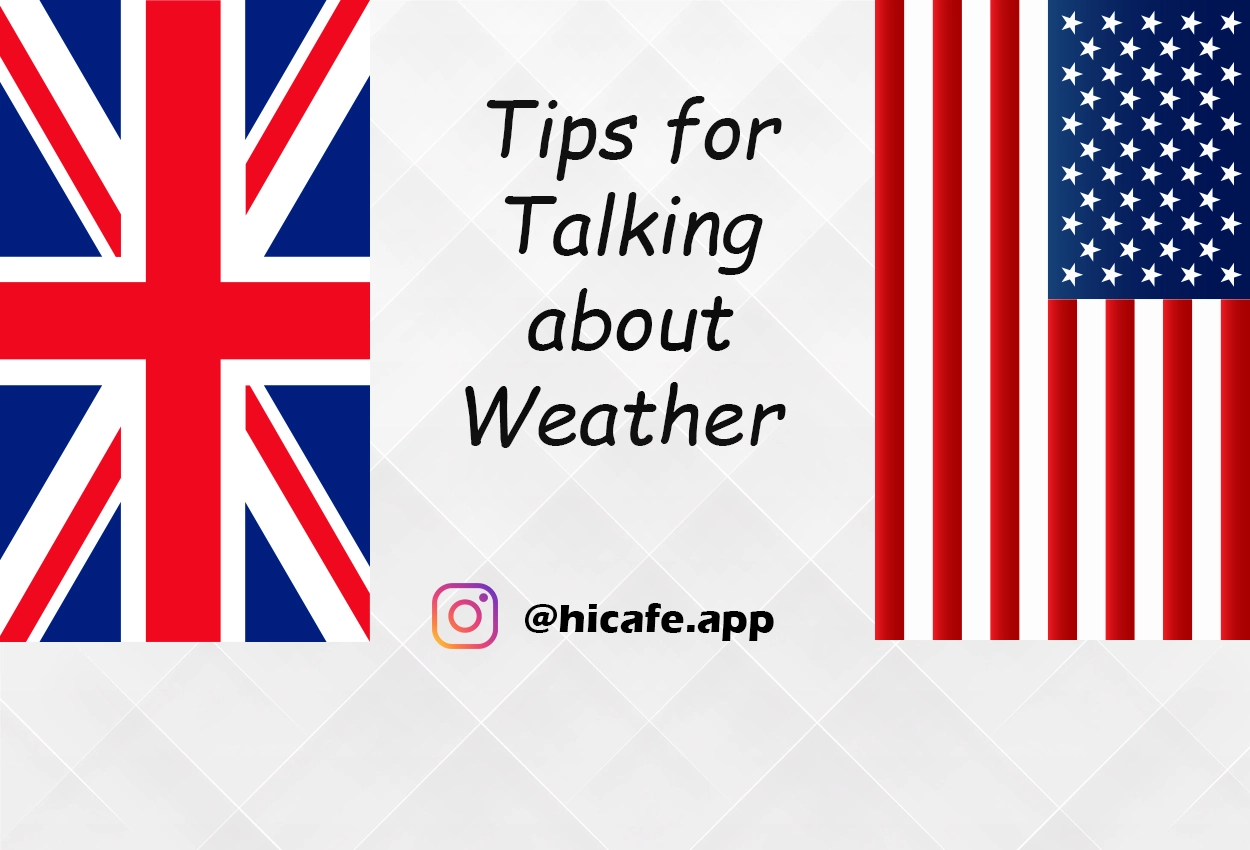Undoubtedly, weather is a main topic of conversation for many English speaking people. Whether it’s small talk with a stranger or a chat with a neighbor, discussing the weather is a common way to break the ice. This lesson explores how to talk about weather in English as a conversation starter, their attitudes towards different weather conditions, how they make predictions, and their unique way of attributing human features to the weather.
Previous Conversation Tip Lesson
Giving and Receiving Gifts in English
How to Say Weather in English
Conversation starters with weather
- Lovely day, isn’t it!
- Bit nippy today.
- What strange weather we’re having!
- It doesn’t look like it’s going to stop raining today.
Attitude to weather
Although British people like to complain about bad weather, they generally put a brave face on it.
If someone complains about too much rain, you might hear:
- Never mind – it’s good for the garden.
If someone complains that it’s too hot, you could hear:
- At least my apples will be happy.
If the conversation has been about general bad weather, perhaps someone will say:
- Well, I’ve heard it’s worse in the west. They’ve had terrible flooding.
Predicting the weather
When we’re talking about the weather, we often make predictions. Remember to use a range of forms, not just the “will” or “going to” form:
- I think it’ll clear up later.
- It’s going to rain by the looks of it.
- We’re in for frost tonight.
- They’re expecting snow in the north.
- I hear that showers are coming our way.
Human attributes
We also attribute human features to the weather, almost as if the weather can decide what to do:
- The sun’s trying to come out.
- It’s been trying to rain all morning.
- It’s finally decided to rain.
Understanding the weather forecast
British gardeners are passionate about their plots and closely monitor weather forecasts, especially for conditions that could harm their plants. Here are some of the weather features which can worry gardeners:
- a hard frost = when the grass is “white” in the morning
- blizzard / galeforce conditions = when it’s very windy
- hailstones = when it rains “ice”
- prolonged rain = when the rain continues for a long time
- blustery wind = when the wind is strong
- a drought (pronounced “drowt”) = when there’s no rain for a long time
Here are some English words for more temperate weather conditions which gardeners like:
- mild weather = when it isn’t too cold
- sunny spells = when there’s sun for periods of time
- light drizzle = when there’s light rain
Conclusion
Next time you find yourself in a British setting, don’t be surprised if the conversation starts with a remark about the weather. So, embrace the chat about the “lovely day,” the “bit nippy” weather, and the “strange weather we’re having,” and join in the uniquely British way of addressing the ever-changing skies above.
Next Conversation Tip Lesson
Related Conversation Lessons
None
Practice Conversation with HiCafe App
By using HiCafe App, you can join free discussion events and Practice English Conversation online or in-person and improve your verbal skills.
All Conversation Lessons
To see and read all of our conversation lessons, you can visit our Improve English Speaking Skills page.
